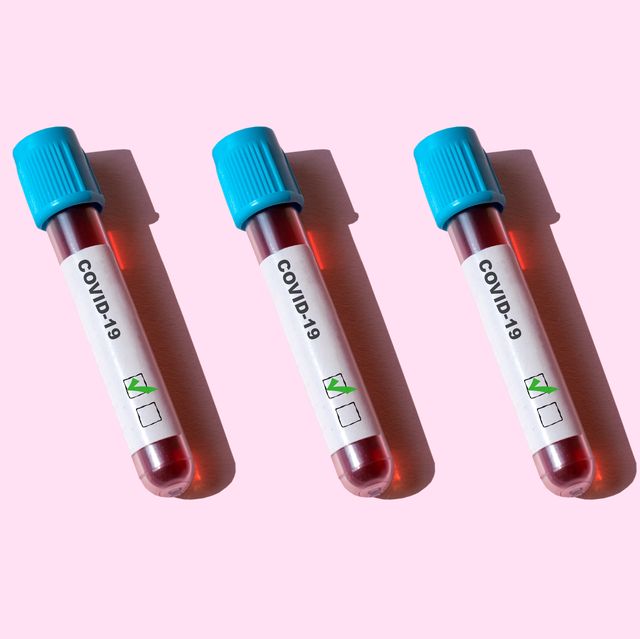
Yulia ReznikovGetty Images
The Minnesota Department of Health announced on March 2 that it is investigating several “breakthrough” cases of COVID-19 that have occurred in the state.
Officials said in a health advisory that the organization, along with the Centers for Disease Control and Prevention (CDC), is investigating positive coronavirus infections in people who were “appropriately vaccinated” against the virus and later developed COVID-19.
There have been 14 breakthrough cases in the state, according to CBS Minnesota, and all were confirmed in healthcare workers who are routinely tested for work. Every patient had either mild or no symptoms.
Oregon has also reported breakthrough cases. The Oregon Health Authority shared on Facebook in mid-February that it has detected four cases of people who tested positive for COVID-19 at least 14 days after completing their vaccinations. The health department said that some people had no symptoms, while others had mild symptoms.
Back up: What is a breakthrough COVID-19 case?
According to the Oregon Health Authority, a breakthrough case is defined as someone who has detectable levels of SARS-CoV-2, the novel coronavirus, in their body at least 14 days after they’ve been fully vaccinated against COVID-19. This means they received both doses of either the Pfizer-BioNTech or Moderna vaccine, as Johnson & Johnson’s single-dose vaccine was just authorized by the FDA on February 27.
“With a breakthrough case, you may develop an infection after you’ve been vaccinated—and at least two weeks have passed since you were fully vaccinated,” says William Schaffner, M.D., an infectious disease specialist and professor at the Vanderbilt University School of Medicine.
The two-week marker is important, says infectious disease expert Amesh A. Adalja, M.D., senior scholar at the Johns Hopkins Center for Health Security—your body should have enough time to develop antibodies to SARS-CoV-2 after that timeframe. Before then, you won’t necessarily have the built-up immunity you need to fight off an infection. “Cases that occur before [the two-week mark] are not breakthrough cases,” Dr. Adalja says.
Why do breakthrough COVID-19 cases happen?
“These vaccines that we’re using are fabulous but they’re not perfect,” Dr. Schaffner says. “At best, they’re 95% effective in preventing serious illness, but minor illnesses can occur.”
Thomas Russo, M.D., professor and chief of infectious disease at the University at Buffalo in New York, says that experts “expect” that some people will still test positive after being fully vaccinated. “What we’re interested in is whether these cases are mild, symptomatic, or asymptomatic,” he notes.
Dr. Adalja points out that “no vaccine has 100% efficacy,” and that breakthrough cases are usually mild and “associated with low viral loads which means these individuals may not even be contagious.”
Think of it this way: Breakthrough cases of COVID-19 can be compared to what someone who gets the flu shot might experience. “Some people can still get the flu after being vaccinated against influenza, but almost invariably that illness will not cause hospitalization,” Dr. Schaffner says. (Worth noting: With an effectiveness of around 95%, the Pfizer and Moderna vaccines are thought to be much more reliable at preventing illness than the annual flu shot, which reduces the risk of flu by 40 to 60%, per the CDC.)
More research is needed to understand if highly infectious variants of the virus may be behind the breakthrough cases. “It is crucial to study breakthrough cases to understand their severity, their contagiousness, and what role variants may be playing,” Dr. Adalja says.
What should you do if you think you might have COVID-19 after being fully vaccinated?
The CDC hasn’t released official guidance on this, but Dr. Russo recommends following standard protocol. That means calling your doctor, getting tested for the virus, quarantining until you get your results, and isolating for 10 days from the day you developed symptoms if you have a positive result.
If you haven’t been vaccinated against COVID-19, medical experts strongly recommend that you get your dose as soon as you can or as soon as you are eligible. Even though the available vaccines do not offer “perfect” protection, Dr. Russo says, they so far do an “outstanding” job at preventing severe cases of COVID-19.
This article is accurate as of press time. However, as the COVID-19 pandemic rapidly evolves and the scientific community’s understanding of the novel coronavirus develops, some of the information may have changed since it was last updated. While we aim to keep all of our stories up to date, please visit online resources provided by the CDC, WHO, and your local public health department to stay informed on the latest news. Always talk to your doctor for professional medical advice.
Go here to join Prevention Premium (our best value, all-access plan), subscribe to the magazine, or get digital-only access.
This content is created and maintained by a third party, and imported onto this page to help users provide their email addresses. You may be able to find more information about this and similar content at piano.io
"case" - Google News
March 05, 2021 at 04:55AM
https://ift.tt/3sKCoRI
Some States Are Reporting ‘Breakthrough’ Cases of COVID-19—Here’s What That Means - Prevention.com
"case" - Google News
https://ift.tt/37dicO5
https://ift.tt/2VTi5Ee
Bagikan Berita Ini














0 Response to "Some States Are Reporting ‘Breakthrough’ Cases of COVID-19—Here’s What That Means - Prevention.com"
Post a Comment